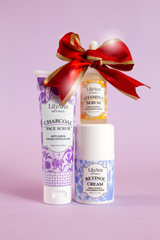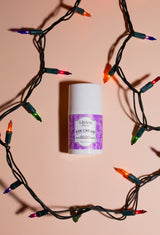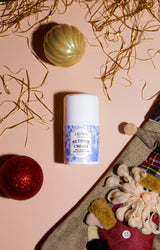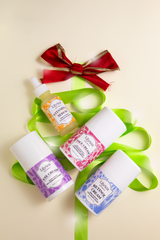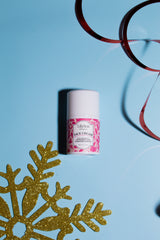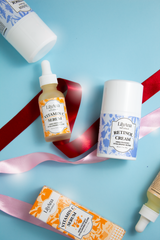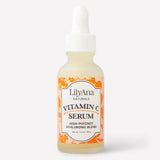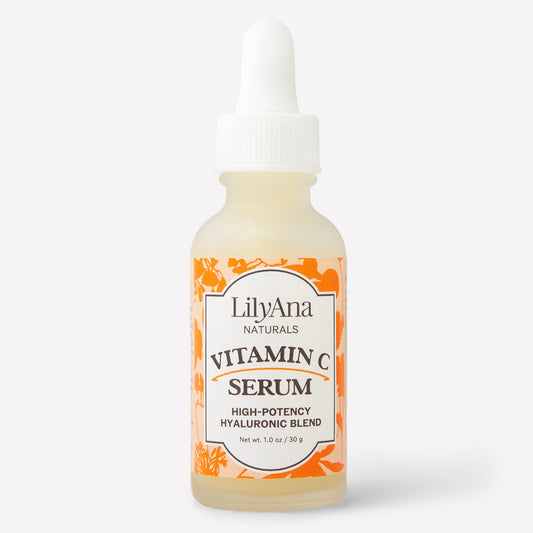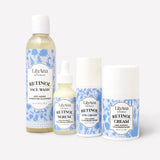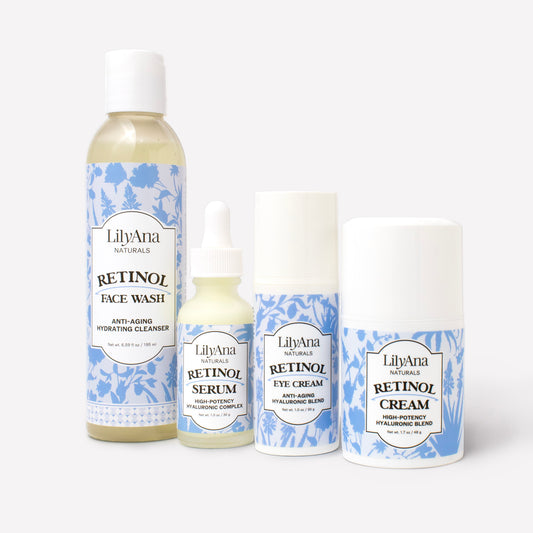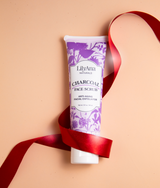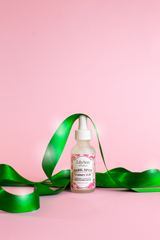Our bodies are 60% water. Water cleanses, purifies, replenishes, and rejuvenates us. When we are lacking this life-giving liquid in our bodies, there are telltale signs in our skin that point to dehydration as the cause.
In this article, we will help you distinguish whether your skin is dry or dehydrated, and what you can do to fix dehydrated skin.

Dry or Dehydrated Skin, What’s the Difference?
Before determining whether or not your skin is dehydrated, it is helpful to rule out that you don’t have dry skin. Let’s discover the differences between dry and dehydrated skin.
- Dry skin: Dry skin is a variety of skin types (others including normal, oily, or combination skin). This kind of skin does not produce enough natural oils, causing the complexion to appear lackluster. The dryness can cause your skin to look flaky, scaly, irritated, and red. Dry skin as a skin type most often occurs due to genetics. However, a hormone imbalance or an underactive thyroid can also be the cause. Having dry skin can also increase the possibility of developing psoriasis, eczema, or dermatitis. Unfortunately, your genetic skin type cannot be changed, but you can select oil-based products for your skincare, supplementing the much-needed oil that will give you a more glowing appearance. Try our Face Cream to combat dry flaky skin.
- Dehydrated skin: Dehydrated skin is a skin condition, not a skin type. It is caused by an insufficient lack of water in your system, so it can happen to any skin type. When you are lacking moisture, this can cause a similarly dull and lackluster appearance to dry skin. For this reason, it is easy to confuse dry and dehydrated skin. Being severely dehydrated would warrant an immediate visit to your doctor. Such severe dehydration would include symptoms like dizziness, faintness, weakness, and less frequent and dark urination. However, here we will be dealing only with the subject of dehydrated skin.
Causes of Dehydrated Skin
We have learned a few causes of dry skin. But what causes dehydrated skin?
- Not drinking enough water
- Weather and the changing of seasons
- Poor diet
- Lack of sleep
- Heavy alcohol or caffeine use
- Increased urination from caffeine or diuretics
- Excess sweating from exercise
Knowing what causes dehydrated skin can allow you to identify the trigger and thus keep it from happening. Some good news is that, unlike dry skin, dehydrated skin is temporary and can be easily improved. So how can you be certain your skin is dehydrated and not dry?
4 Hints Your Skin is Dehydrated
Below, we give 4 helpful hints on how to tell if your skin is dehydrated. Then, we will tell you exactly what you can do to fix it.
1. Premature signs of aging
When your skin is dehydrated, your skin will display signs of premature aging like less elasticity and more fine lines and wrinkles. Just like the rest of our bodies, our skin is mostly made of water. So when it is missing its normal level of moisture, the skin will not perform its functions as it normally would.
When we are fully moisturized, there is less friction between the fibers due to water’s lubricating abilities. But when we are lacking the optimal water levels, our skin will feel stiff and without its usual elasticity. Try the pinch test to determine the elasticity of your skin, also known as skin turgor.
- Choose an area of skin on your cheek, back of your hand, stomach, or chest under the collarbone. Pinch a small portion of your skin and squeeze it lightly. Hold for a few seconds.
- Then let go. If your skin bounces back immediately, you are more than likely not dehydrated. But if the skin is slightly slow in its return to normal and doesn’t bounce back immediately, your skin is most likely dehydrated.
- Try on other areas of skin to be sure of your result.
In addition to less elasticity, you may also notice more sensitive fine lines. These kinds of wrinkles look like a triangular network of small, fine lines. They may appear in places you don’t remember having, causing you slight panic.
But don’t fret! These fine lines are not the same as real, deeper wrinkles that are caused by a lack of collagen. They are due to dehydration and can vanish with the right habits.
2. Dark Under-Eye Circles
If you have your friends and family often telling you “you look tired”, it may be due to the appearance of dark circles under your eyes. These dark circles have a few common causes, one of them being not enough hydration. Dehydration can cause the skin under your eyes to look dull and your eyes to look sunken. The lack of water means you aren’t getting the proper circulation in your blood vessels, causing discoloration.
3. Sensitive, itchy skin
As we’ve mentioned earlier, weather can affect the hydration of your skin. This includes both extreme heat and extreme cold. These types of climates can easily extract moisture from your skin cells, which can then cause tightness of the skin. In turn, the tight skin will itch.
Once your skin has become dehydrated, you will then have less protection from things like bacteria and pollution because the moisture barrier has been compromised. This can cause more sensitive skin plagued by redness, irritation, and itchiness.
4. Breakouts
Dehydrated skin can be very complex, leading to seemingly opposite skin issues at the same time. Strangely enough, breakouts and oily skin can occur even when you are dehydrated. As we’ve mentioned before, dehydrated skin looks dull and lackluster. This is due to things like cell turnover being compromised.
When you don’t have enough water in your body, the skin does not shed its outer layer often enough. This causes dead cells to build up on the surface, which clogs pores. Additionally, skin creates more oil in an attempt to replace the missing moisture. This then causes breakouts due to the sebum buildup. If your skin feels oily and dry at the same time, it may be due to dehydration.
How to Fix Dehydrated Skin
There are several methods for replenishing the moisture levels in your skin. However, this must be a comprehensive effort to address not only your skincare routine but also your overall health and wellness. Implementing better habits can ensure that dehydrated skin isn’t a recurring problem.
Try to adopt as many of these behaviors as you can to get that glowing, natural-looking beautiful skin:
- Hydrate: First to replenish that H2O! Drinking water is the number one thing you can do to combat dehydration. You have heard the old 8 glasses of water a day rule, but this is too simplistic. It is recommended by the Institute of Medicine (IOM) that women should drink 74 ounces of water a day, which is over 9 cups (101 ounces is recommended for men). This recommended amount includes anything that you eat or drink that has water in it, like fruits or veggies. However, the right amount for you is based on more individual factors like your weight, activity levels, and seasonal changes. With water content, it is important not to underdo it. But overdoing it can lead to mineral loss. Ask your doctor or a dermatology office how much water you should consume daily. A medical professional specializing in skincare will best be able to ascertain the perfect amount for your needs.
- Minimize alcohol and caffeine: These two substances are the biggest culprits for causing dehydrated skin. This is because they are both diuretics, which remove water from the body. It is important to cut back on alcohol and caffeine if dehydrated skin is a chronic issue. But don’t worry! You don’t need to toss your favorite wine. A glass of your favorite alcoholic beverage and a cup or so of Joe during your day is still perfectly fine.
- Replenish fluids when you exercise: Sip on water as you work out. As you sweat, you lose body fluid. That is why you must replace your fluids as you exercise, especially if you are dehydrated. Take a few sips every 20 minutes and drink plenty of fluids after your workout is over. When you exercise, your body temperature increases. This causes you to sweat which cools you down. If you don’t have the proper hydration, your body will not be able to cool itself. It will be harder to exercise when you are lacking hydration; you may feel more tired and your mental function will also be weakened. It is important to mention that if you exercise when you are severely dehydrated, it can cause heat exhaustion, heatstroke, seizures, and even death. If you suspect you are severely dehydrated, get medical help immediately.
- Get your Zzz’s: It has been found that hydration and sleep are related. When we sleep, the body minimizes water loss to stay hydrated. The mechanism that does this is a hormone called vasopressin, which is activated by osmosensory neurons. The release of vasopressin instructs the body to store water, which enables your body to be hydrated as you sleep. So, the more beauty sleep you get, the more hydrated your skin will look in the morning.
-
Change your diet: Hydrate from the inside out. Eat more plant-based foods like fruit and veggies. Our favorites are those with a high water content like watermelon or celery. If possible, eat less sugar, dairy, and fried foods. Fried foods are high in saturated fats which can affect circulation. This can then rob your body of the nutrients it needs, including moisture. It may be hard at first, but your skin will thank you.
-
Develop a nourishing skincare routine: The other suggestions listed above all help you fight dehydration from the inside out. But what about the topical symptoms of dehydration? Adopting and maintaining a nourishing skincare routine is essential for brightening the dullness of your skin.

Nourishing Skincare Routine for Dehydrated Skin
Once you’ve concluded your skin is dehydrated, identified the cause, and changed some habits, then it’s time to give your skin the hydrating nourishment it has been pining for. So here we go:
1. Use a gentle cleanser
When your skin is dehydrated, you want to implement a cleanser that will not include harsh nasties like parabens, artificial colors, fragrances, gluten, phthalates, SLS, SLES, or petroleum. These can wipe out any remaining moisture left in the skin, possibly worsening the issue. Try our Vitamin C Face Wash with lukewarm water to gently cleanse your face, the natural way.
2. Spritz on a hydrating toner
Next, you’ll want to draw water into your skin with a toner. Toners also can get rid of any impurities that are still stuck in your pores after your AM and PM face washing. If they are used regularly, they can make a big difference in the way your pores look and feel.
We love Vitamin C Face Toner, which will keep your skin hydrated, enabling more elastic skin. Vitamin C is one of the many antioxidants that will help protect from free radicals that can damage your sensitive dehydrated skin when it is most vulnerable.
3. Choose a hyaluronic acid serum designed for your skin goals
Did you know that hyaluronic acid can be found naturally in our skin? Hyaluronic acid is a clear substance that is found in your skin, eyes, and tissue. It can retain water, which keeps your tissues moist and fully lubricated. A hyaluronic acid serum can replicate the function hyaluronic acid performs in our bodies.
For this reason, a serum containing hyaluronic acid works wonders on dehydrated skin. It will ensure your skin retains moisture, restoring elasticity and keeping your skin soft and plump. This can also cause the eradication of those fine lines we despise. We have several revitalizing hyaluronic acid serums that will target your dehydrated skin:
- Vitamin C Serum: Try this serum if you want to hydrate your skin and treat those fine lines and wrinkles. Ideal for those with acne scars, uneven skin tone, UV damage, and dark spots to get all-around radiant skin.
- Retinol Anti-Aging Facial Serum: Reverse the premature signs of aging caused by dehydration with our potent and pure retinol serum. It can even get to those deep more permanent wrinkles, causing a more youthful look.
-
Super C Brightening Face Serum: This miracle serum fights inflammation and allows your skin to renew after moisture loss. It can set back the signs of aging, allowing your skin to appear brighter.
- Dark Spot Corrector Brightening Serum: This one is ideal for spots and blemishes that can occur on your face, chest, and hands due to dehydration (and anything else really). It gently exfoliates to keep your skin feeling soft and hydrated.
4. Moisturize your skin
Although drinking lots of water and applying serums are great for hydrating your skin, the moisture may not stay. That is why it is important to focus not only on hydration but also on preventing moisture from escaping the skin. Prevent transepidermal water loss with a powerful moisturizer. Try one of these great products to lock in hydration:
-
Retinol Cream with Hyaluronic Acid: The dullness of tired skin is regenerated with this retinol and hyaluronic acid cream blend. The nourishing formula will bring moisture to dehydrated skin, promote collagen buildup, and help get rid of those fine lines.
-
Super C Face Cream: Great for a variety of skin problems related to excess oils, acne, wrinkles, and even dry and itchy skin that can occur when you’re dehydrated. This smooth face cream will help clear your skin as you moisturize.
-
Rose & Pomegranate Face Cream: The dullness and tightness of your thirsty skin will be a thing of the past with this face cream. Meant for all skin types, the added moisture will enrich and rejuvenate.
- Lavender Face Mask: When you have a bit of me-time, try this delicious face mask. It nourishes and relaxes you as it treats acne and those worry lines. Detox as you relax, allowing youthful, glowing, supple, and radiant skin to be revealed.
Hydrate Your Skin With Good Habits
Healthy skin is the result of good habits. Some of the most important habits have to do with keeping yourself hydrated and moisturized. And here at LilyAna
Naturals, we believe that implementing quality products for your skin concerns is one of the best things you can do to ensure healthy, hydrated skin. Talk to your dermatologist about which LilyAna Naturals products may be best for you.
